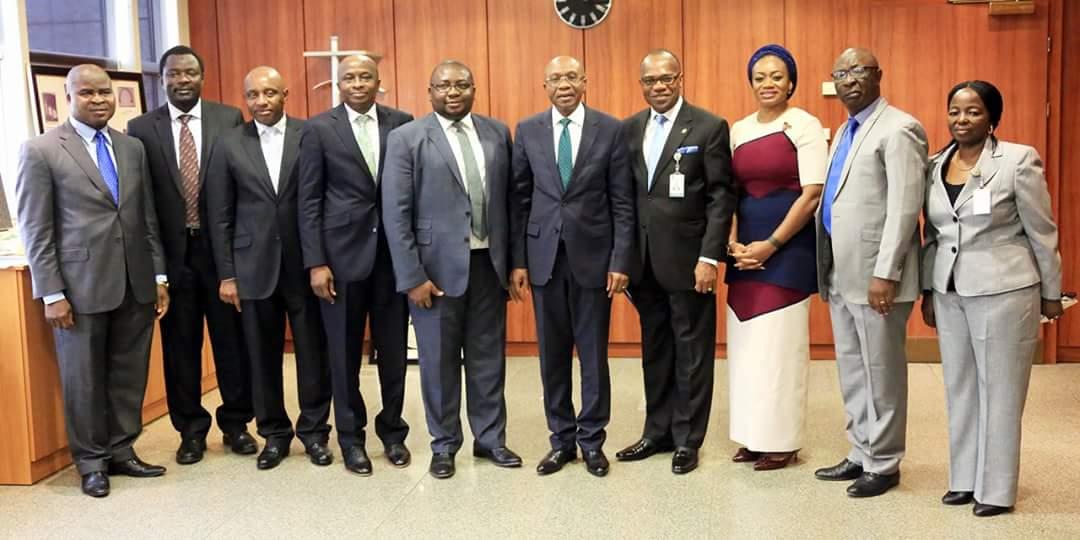The business week started on Monday, with the World Bank release of its latest Migration and Development Brief. It showed that remittances to Nigeria rose by 10% to USD22 billion, from USD19.64 billion in 2016, supported by improving economic growth in advanced economies and higher oil prices benefiting regional economies. Remittance inflows to Nigeria represent the highest in the Sub-Saharan region and the fifth highest in the world. We expect further increase in remittances this year to serve as a boost to Nigeria’s current account in its balance of payments.
Shortly after, the Federal Inland Revenue Service (FIRS) announced the generation of a total of NGN1.17 trillion in Q1-2018 from the collection of various taxes. Compared to the NGN778.19 billion reported in the corresponding quarter of 2017, the latest figure represents an increase of 50.3%, and 69.5% of the total target to date. Though unfolding rather slowly, the revenue generation drive of the fiscal authority is yielding result and will support budget outturn if sustained.
At the nation’s capital markets and related activities on equities, gains resurfaced strongly on the equities market, as the ASI posted its highest weekly gain in 12 weeks. It was a week of mixed trading, wherein two sessions of gain – including today’s month-high of 1.21% — offset three sessions of losses.
 The Consumer Goods (+6.30%) index posted the largest gain among major sectoral indices, followed by the Oil & Gas (+3.25%) and Banking (+0.67%) indices, while the Industrial Goods and Insurance indices shed 4.89% and 1.41% respectively. The notable stocks include; NESTLE (+13.53%), FO (+20.69%), UBA (+3.57%), DANGCEM (-1.80%), and MBENEFIT (-17.24%) respectively.
The Consumer Goods (+6.30%) index posted the largest gain among major sectoral indices, followed by the Oil & Gas (+3.25%) and Banking (+0.67%) indices, while the Industrial Goods and Insurance indices shed 4.89% and 1.41% respectively. The notable stocks include; NESTLE (+13.53%), FO (+20.69%), UBA (+3.57%), DANGCEM (-1.80%), and MBENEFIT (-17.24%) respectively.
As new week begins today, analysts are upbeat that gains on the bourse may extend, amidst significant drop in fixed income yields, and relatively lower prices of risky assets.
Looking at movements in the fixed income and money market segments, the overnight lending rate eased to 3.42%, representing a 33 bps w/w contraction, against last week’s close of 3.75%. Inflows from matured OMO bills (NGN226.68 billion) and monthly FAAC disbursements (NGN348.40 billion) outweighed outflows from FX sales (USD210 million), OMO auctions (NGN276.68 billion), and bond auction (NGN90.00 billion).
This week, inflows totaling NGN377.52 billion — maturing OMO bills (NGN186.68 billion) and maturing treasury bills (NGN190.84 billion) — are likely to outweigh outflows; thus, higher liquidity. In effect, a contraction in the overnight lending rate is likely.
On Treasury Bills, proceedings in the NTB market were bullish within the week under review, with sentiments driven by increased liquidity levels. As a result, average yield fell by 8 bps w/w to 11.31%. High demand for the 125DTM (-91 bps) and 279DTM (-270 bps) bills caused yield contraction at the mid (-18 bps) and long (-9 bps) ends of the curve, while selloffs of the 34DTM (+188 bps) led to yield expansion at the short (+28 bps) segment.
However, yields are expected to drop in the meantime, supported by expected buoyant system liquidity. At the NTB auction scheduled for next week, the CBN will offer NGN95.42 billion – NGN9.54 billion of the 91-day, NGN47.71 billion of the 182-day, and NGN38.17 billion of the 364-day – worth of bills to the market.
The Nigerian Bond market activities last week were mixed, albeit with a bearish tilt, with slight selloffs occurring on the back of higher-than-expected cut-off rates at the CBN’s OMO auction. Consequently, average yield rose by 1 bp to 12.68%. Yield contraction at the short (-4 bps) and mid (-1 bp) ends of the curve were overshadowed by yield expansion at the long (+7 bps) segment. Notable bonds include the JUN-2019 (-173 bps), MAR-2024 (-5 bps), and MAR-2036 (+28 bps). At Wednesday’s primary auction, the DMO allotted NGN38.29 billion of the APR-2023 (new issue), NGN37.75 billion of the MAR-2025 (re-opening), and NGN63.96 billion of the FEB-2028 (re-opening) bonds at respective stop rates of 12.75%, 12.85% (vs. 13.53% at the previous auction), and 12.89% (vs. 13.60% at previous auction). The auction was 1.87x oversubscribed.
Pundits are of the view that there may be lower yields in the short-to-medium term, reflecting (1) falling inflation rate, (2) strengthening expectation of monetary easing, and (3) the FGN’s new debt management strategy.
 On the Foreign Exchange activities, the CBN continued to support the naira, injecting USD210 million into the forex market during the week, comprising USD100 million, USD55 million, and USD55 million disbursements to the wholesale, SMEs, and invisibles windows, respectively. The NGN strengthened marginally against the USD in the I&E FX window by less than 1 bps to NGN360.41, while it remained flat at NGN363 in the parallel market for the 12th consecutive session. Total turnover in the I&E FX window dropped 19.40% to USD860.88 million, with bulk of trades consummated within the NGN360-369/USD band. Meanwhile, trades in FX forwards showed appreciation in the 1-year dated (+0.84%) forwards to NGN405.34, while 1-month, 3-month, and 6-month forwards dropped 0.06%, 0.34%, and 1.05% to NGN363.19, NGN369.41, and NGN379.75 respectively.
On the Foreign Exchange activities, the CBN continued to support the naira, injecting USD210 million into the forex market during the week, comprising USD100 million, USD55 million, and USD55 million disbursements to the wholesale, SMEs, and invisibles windows, respectively. The NGN strengthened marginally against the USD in the I&E FX window by less than 1 bps to NGN360.41, while it remained flat at NGN363 in the parallel market for the 12th consecutive session. Total turnover in the I&E FX window dropped 19.40% to USD860.88 million, with bulk of trades consummated within the NGN360-369/USD band. Meanwhile, trades in FX forwards showed appreciation in the 1-year dated (+0.84%) forwards to NGN405.34, while 1-month, 3-month, and 6-month forwards dropped 0.06%, 0.34%, and 1.05% to NGN363.19, NGN369.41, and NGN379.75 respectively.
Observers are upbeat that the theme on the forex market is likely to remain stability, as oil prices continue to shore up the reserves and support the CBN’s interventions in the market.









